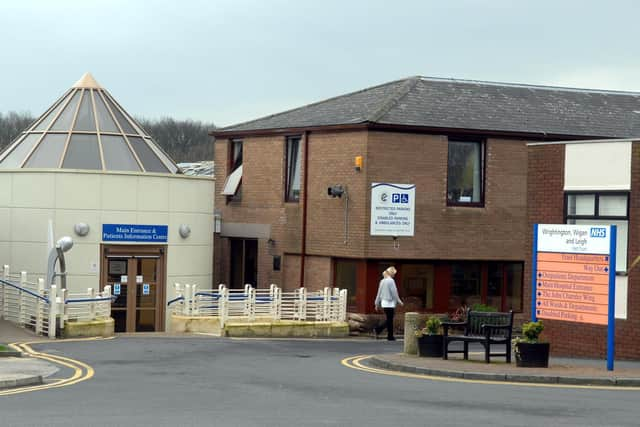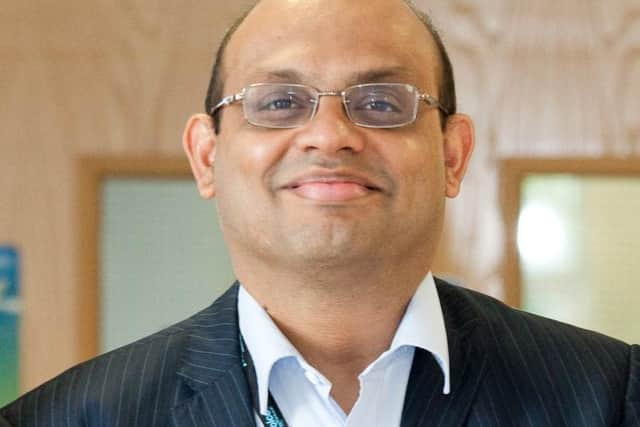New £1m high-tech hub to train surgeons at borough hospital
and live on Freeview channel 276
The new Technology Enhanced Learning (TEL) Centre will be based in Wrightington and promises to deliver enhanced remote learning for trainee doctors and senior clinicians to practice medical procedures.
It will allow surgeons to learn and train remotely and is believed to be the first medical facility in the north of England which can do this.
Advertisement
Hide AdAdvertisement
Hide Ad

Prof Kumar said: “The Covid-19 pandemic has been a catalyst for change around the world and in the higher education sector, it has revolutionised the way we teach and deliver training.
"While there are still many benefits to face-to-face teaching and hands-on sessions, these technologies are the next generation ahead of what we currently recognise as simulation training.”
The TEL plans to provide a fully immersive teaching experience for users to train in anatomy, equipment training and surgical simulation using cutting-edge technology including a combination of virtual reality (VR), mixed reality (MR) and augmented reality (AR).
Prof Kumar said: “The centre will be for a wide range of users, from medical students to doctors and practising senior clinicians. In medical training this is really exceptional because the key concept behind simulation training is patient safety, which is enhanced when surgeons can practice time and time again using this technology.”
Advertisement
Hide AdAdvertisement
Hide Ad

Prof Kumar explained why immersive technology is key to unlocking future of medical training.
He said: “The benefit of this training is that is removes the need for learners to all crowd in one space, saving on travel and lending itself well to the future of virtual learning.
“In addition, we know that medical students learn better if they can physically see and understand a demonstration in 3D, which this is key to help them really understand the human anatomy. As you become more experienced and senior in medical training this becomes subconscious, but until students reach this point, we hope this technology will help to bridge the gap and help to speed up the learning process.”
While the TEL is based in Wrightington, the sessions will be beamed to several centres across the UK simultaneously.
Advertisement
Hide AdAdvertisement
Hide AdLearners will be provided with VR haptic hand controls and wearable headsets to transport them to a virtual training environment, removing the need to travel.
The TEL team will work as partners with the Department of Computer Science at Edge Hill.
Professor Nik Bessis, head of the department, said: “This is a unique and exciting collaborative opportunity which will enable medical students, staff and clinicians to use our state-of-the-art facilities and ultimately receive next generation training.”
The team developing the TEL hope that it will be ready to launch within the next six to 12 months.
Advertisement
Hide AdAdvertisement
Hide AdEdge Hill’s Medical School is one of only three new freestanding medicine schools in the country and the only one in the North West of England.
If you value what we do and are able to support us, a digital subscription is just £1 for your first month. Try us today by clicking here and viewing our offers.